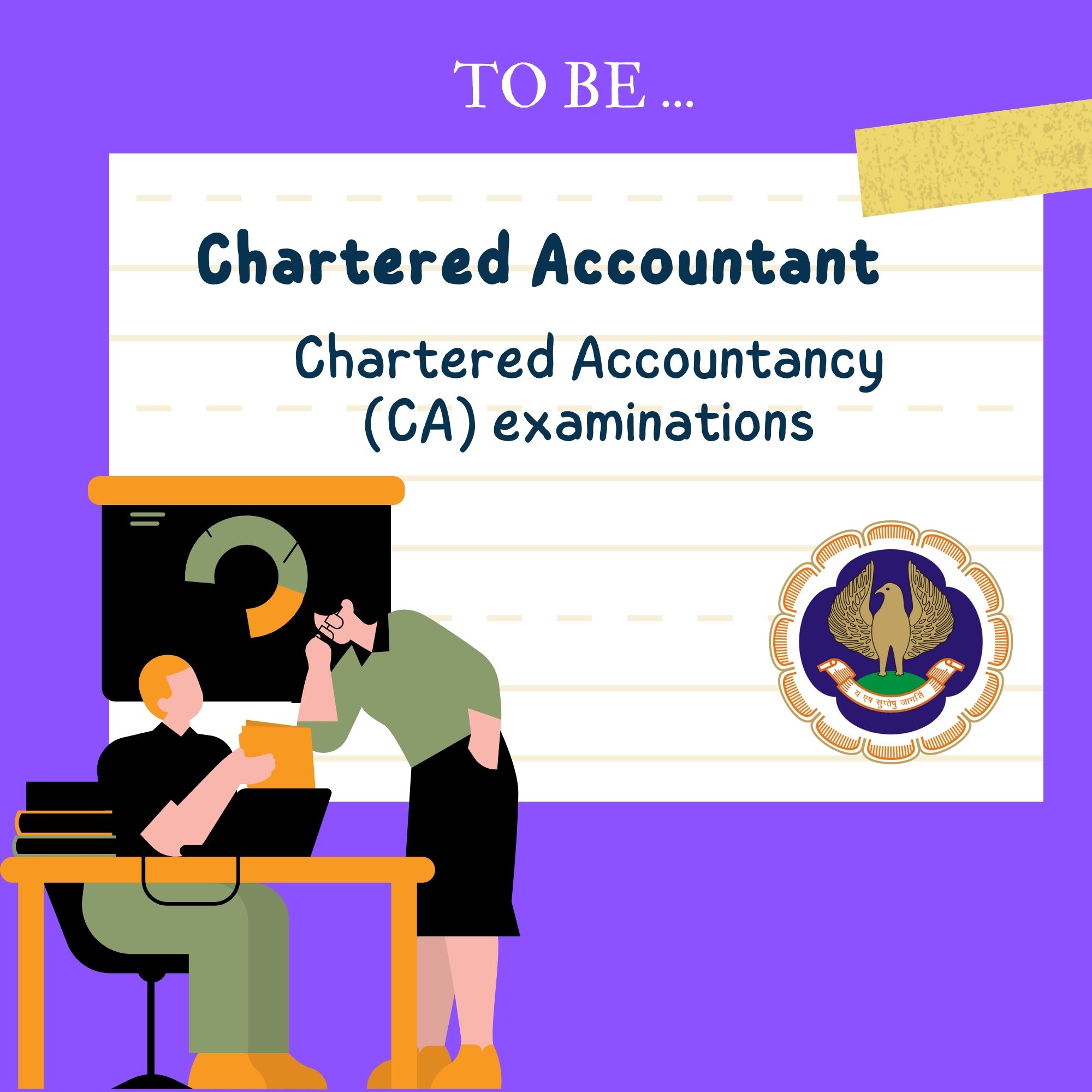Career Guide

Chartered Accountancy (CA)
CA stands for Chartered Accountant. It is a prestigious and highly respected professional designation for individuals who have expertise in accounting, auditing, taxation, and financial management. Chartered Accountants are trained and certified to provide a wide range of financial services to businesses, organizations, and individuals. Here are some key points about the CA profession:
1. Role and Responsibilities:
Chartered Accountants play a crucial role in financial management, ensuring the accuracy and compliance of financial records and statements. They provide services such as auditing financial statements, preparing and analyzing financial reports, managing taxation matters, advising on financial strategies, and assisting in business decision-making.
2. Professional Body:
In India, the Institute of Chartered Accountants of India (ICAI) is the statutory body that regulates and governs the Chartered Accountancy profession. ICAI conducts the Chartered Accountancy (CA) course and examinations.
3. CA Course:
The CA course is a rigorous and comprehensive program that consists of three levels: Foundation, Intermediate, and Final. It includes theoretical education, practical training, and examinations. Aspiring Chartered Accountants are also required to complete a period of articleship (practical training) under the guidance of a practicing Chartered Accountant.
4. Examinations:
CA examinations are conducted twice a year, typically in May and November. The examinations are challenging and cover various subjects, including accounting, auditing, taxation, financial management, and law.
Examination pattern
The Chartered Accountancy (CA) examinations conducted by the Institute of Chartered Accountants of India (ICAI) consist of three levels: Foundation, Intermediate, and Final. Each level has its own examination pattern and subjects. Here is an overview of the examination pattern for each level:
1. CA Foundation:
Subjects: CA Foundation comprises four papers:
Principles and Practices of Accounting
Business Laws and Business Correspondence and Reporting
Business Mathematics, Logical Reasoning, and Statistics
Business Economics and Business & Commercial Knowledge
Exam Format: The CA Foundation exam is conducted in pen-and-paper mode (offline). It consists of objective-type multiple-choice questions (MCQs) and descriptive questions.
Passing Criteria: To pass the CA Foundation, candidates need to secure a minimum of 40% marks in each paper and an aggregate of 50% in all the papers combined.
2. CA Intermediate:
Subjects: CA Intermediate is divided into two groups, and each group consists of four papers. The subjects include:
Group I: Accounting, Corporate Laws and Other Laws, Cost and Management Accounting, and Taxation.
Group II: Advanced Accounting, Auditing and Assurance, Enterprise Information Systems & Strategic Management, and Financial Management & Economics for Finance.
Exam Format: CA Intermediate exams are also conducted in pen-and-paper mode. The papers in each group consist of a mix of subjective and objective questions, including MCQs, short answers, and descriptive questions.
Passing Criteria: To pass the CA Intermediate level, candidates need to secure a minimum of 40% marks in each paper and an aggregate of 50% in all the papers of the group.
3. CA Final:
Subjects: CA Final is also divided into two groups, and each group consists of four papers. The subjects include:
Group I: Financial Reporting, Strategic Financial Management, Advanced Auditing and Professional Ethics, and Corporate and Economic Laws.
Group II: Strategic Cost Management and Performance Evaluation, Elective Paper, Direct Tax Laws and International Taxation, and Indirect Tax Laws.
Exam Format: CA Final exams are conducted in pen-and-paper mode. The papers consist of a mix of subjective and objective questions, including MCQs, short answers, and descriptive questions.
Passing Criteria: To pass the CA Final level, candidates need to secure a minimum of 40% marks in each paper and an aggregate of 50% in all the papers of the group.
Note: The CA examinations are conducted twice a year, typically in May and November. Candidates can appear for the examinations after completing the required period of articleship and successfully completing the coaching and study requirements specified by ICAI.
The examination pattern and syllabus are subject to periodic revisions by ICAI to align with changes in accounting standards and regulatory requirements. Therefore, candidates preparing for CA examinations should regularly refer to the official ICAI website and study materials for the most up-to-date information and guidelines.
5. Membership:
Upon successfully completing all levels of the CA course, including the examinations and articleship, candidates become members of ICAI and are awarded the title of "Chartered Accountant." Chartered Accountants are required to adhere to a strict code of ethics and professional standards.
6. Career Opportunities:
Chartered Accountants have diverse career opportunities. They can work in public practice, where they offer services to clients, including auditing and tax consultancy.
They can also work in industry, finance, banking, government, and non-profit organizations, holding positions such as Chief Financial Officer (CFO), finance manager, and financial controller. Many Chartered Accountants also choose to establish their own practices.
7. Global Recognition:
The CA designation is recognized and respected globally, and Chartered Accountants from India can work in various countries.
8. Continuous Professional Development:
Chartered Accountants are required to engage in continuous professional development to stay updated with changes in financial regulations, taxation laws, and accounting standards. Becoming a Chartered Accountant is a prestigious and rewarding career path that requires dedication, hard work, and a strong understanding of financial principles and practices. It offers a wide range of career opportunities and the potential for professional growth and advancement.
